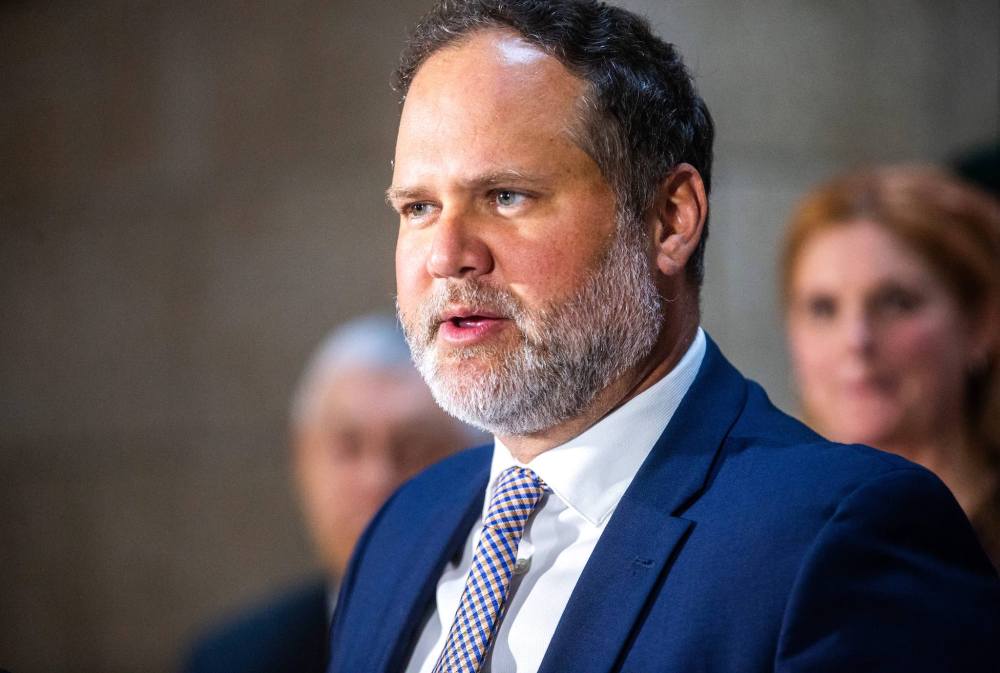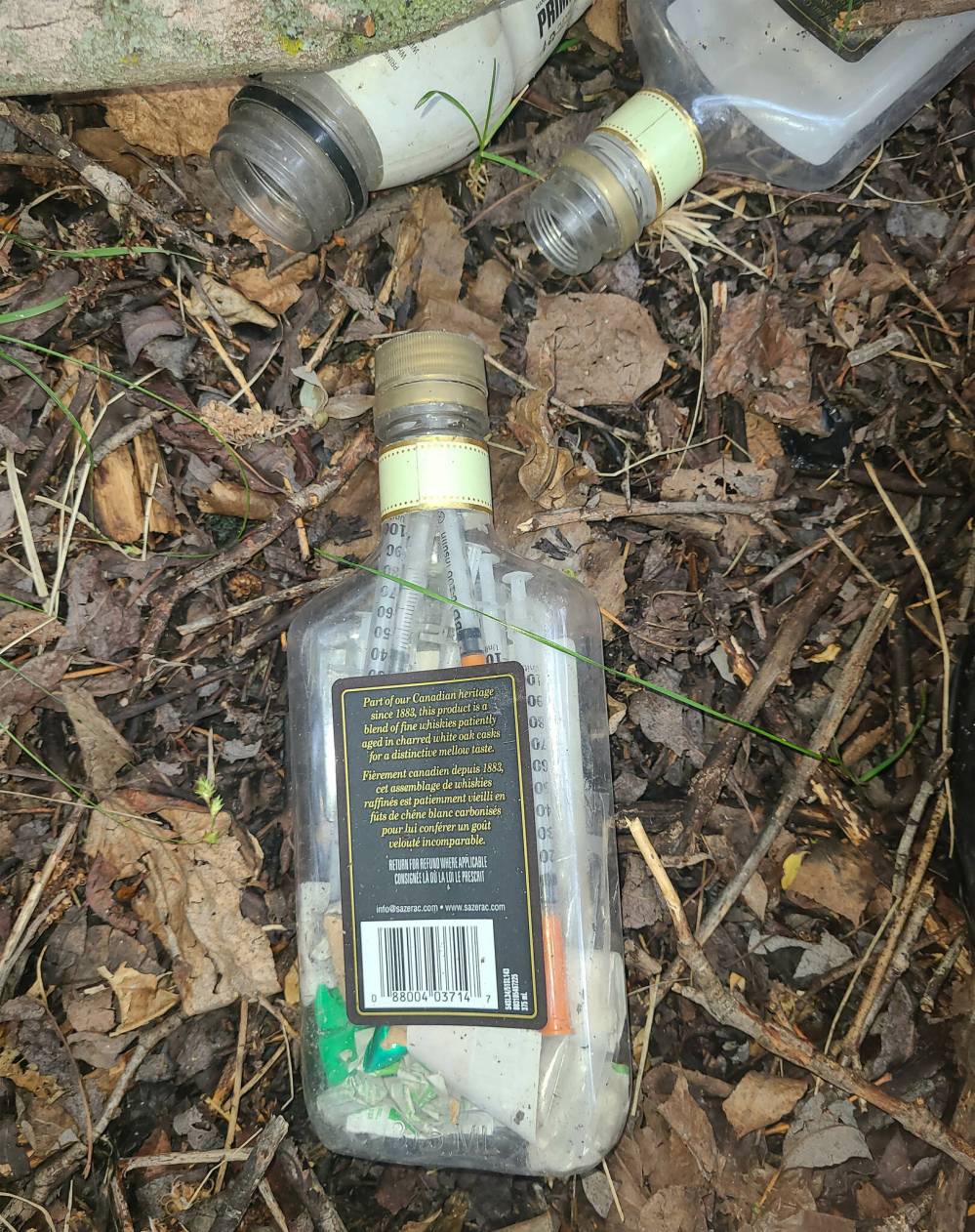Little help for growing drug problem
Outside Winnipeg, communities struggle to provide treatment, clamp down on crime
Advertisement
Read this article for free:
or
Already have an account? Log in here »
To continue reading, please subscribe:
Monthly Digital Subscription
$1 per week for 24 weeks*
- Enjoy unlimited reading on winnipegfreepress.com
- Read the E-Edition, our digital replica newspaper
- Access News Break, our award-winning app
- Play interactive puzzles
*Billed as $4.00 plus GST every four weeks. After 24 weeks, price increases to the regular rate of $19.95 plus GST every four weeks. Offer available to new and qualified returning subscribers only. Cancel any time.
Monthly Digital Subscription
$4.99/week*
- Enjoy unlimited reading on winnipegfreepress.com
- Read the E-Edition, our digital replica newspaper
- Access News Break, our award-winning app
- Play interactive puzzles
*Billed as $19.95 plus GST every four weeks. Cancel any time.
To continue reading, please subscribe:
Add Free Press access to your Brandon Sun subscription for only an additional
$1 for the first 4 weeks*
*Your next subscription payment will increase by $1.00 and you will be charged $16.99 plus GST for four weeks. After four weeks, your payment will increase to $23.99 plus GST every four weeks.
Read unlimited articles for free today:
or
Already have an account? Log in here »
Hey there, time traveller!
This article was published 21/11/2024 (446 days ago), so information in it may no longer be current.
Irene Kroeker and her colleagues are often left disappointed and frustrated when drug addicts come to them in search of treatment in one of Manitoba’s biggest cities.
Kroeker, founder and executive director of Steinbach Community Outreach, said the lack of options in the southeastern city prevents some of her clients from receiving local or timely help.
SUPPLIED Irene Kroeker, founder and executive director of Steinbach Community Outreach.
“I am personally not very happy that we have to go outside of our city limits to access help for people,” Kroeker said. “We’re the third-largest city in Manitoba. Why don’t we have (additional services) in Steinbach?”
The situation isn’t unique to Steinbach amid a Manitoba-wide toxic drug crisis that started building years ago.
Several communities are grappling with a spike in meth or opioid use, alongside concerns about safety, crime and access to addictions treatment.
“I would say there’s certainly an element of acute need right now,” Justice Minister Matt Wiebe said about the crisis. “The challenge that we’re seeing is as bad as it’s ever been.”
In Steinbach, Kroeker said the community outreach supported 60 people with addictions as of its most recent “point-in-time” count. The figure has been between 40 and 60 in recent years.
“There are probably way more in Steinbach,” Kroeker said.
“I am personally not very happy that we have to go outside of our city limits to access help for people.”–Irene Kroeker
She said they often have to refer clients to treatment services in Winnipeg due to a shortage of options in Steinbach, which is home to more than 17,800 people.
More detox beds and a Rapid Access to Addictions Medicine (RAAM) Clinic are needed, she said.
“People want to stay within our city limits. If we could get them in right away, they would have a much better chance,” she said.
A July 2023 report by Auditor General Tyson Shtykalo said many Manitobans, especially in rural and northern communities, don’t have access to appropriate addictions treatment when they need it.
The report said capacity did not meet demand, resulting in long waits for treatment.
The NDP government, elected in October 2023, has pledged a “comprehensive” approach — from treatment and supportive housing to education and enforcement — to tackle the crisis.
MIKAELA MACKENZIE / FREE PRESS FILES Justice Minister Matt Wiebe: "there’s certainly an element of acute need right now.”
“The work is not always easy, but we’re willing to take it on as a government,” Wiebe said at the news conference in Swan River.
A government spokesperson said Manitoba recently added 1,121 spots for addictions treatment and services, including withdrawal management capacity for 725 people annually. It also announced a new digital RAAM clinic.
There are plans for a supervised drug consumption site in Winnipeg. The province’s new public safety strategy includes sobering centres and healing lodges, efforts to combat a drug-fuelled shoplifting surge in Winnipeg, and bail reform measures.
Wiebe joined Swan River-area municipalities and the RCMP Thursday to announce a new three-officer RCMP unit that will target organized and violent crime, including drug trafficking, in the region. It is a five-year pilot project.
“We’re hoping we will see successes here and look at future opportunities in other places,” Wiebe said.
“The challenge that we’re seeing is as bad as it’s ever been.”–Justice Minister Matt Wiebe
Swan River Mayor Lance Jacobson said he hopes the general investigation section can begin work in early 2025, following a recruitment drive.
“This is just one piece of it,” he told the Free Press. “Addictions and rehabilitation is another huge part of it.”
Progressive Conservative justice critic Wayne Balcaen said the government still has “no real plan” to address the worsening drug crisis and “rampant” crime in Swan River.
While other communities could use a general investigation section, the RCMP and other police services face critical staff shortages, he said.
Wiebe accused the former PC government of failing to take “real action” while the drug crisis escalated.
SUPPLIED Used needles found in the community of Swan River.
Swan River RCMP commander Staff Sgt. Steve Hensen said officers are working with harm reduction, mental-health and other groups to address drug issues.
Prairie Mountain Health has started a needle cleanup program in the western Manitoba town in response to concerns about a high number of sharps being discarded in public.
Kathy Valentino, interim president of the Association of Manitoba Municipalities, called on the province to strengthen efforts to manage the distribution and disposal of sharps.
Steinbach’s RCMP detachment also has a general investigation section, which has been very effective, Staff Sgt. Guy Landreville said at an April council meeting, where he discussed drug-driven break-ins and thefts.
He said RCMP were working with a community organization to direct repeat offenders to addiction services, because the traditional approach of arrests and court sentences wasn’t working.
Thompson Mayor Colleen Smook welcomes any new efforts to tackle drug problems in smaller communities.
“Adding additional units around the province speaks to the need to get a handle on it,” she said.
“The people have to be ready for help before you can actually help them.”–Thompson Mayor Colleen Smook
Smook said issues in the northern city spread to outlying communities. Some remote First Nations have declared a state of emergency due to drug abuse or related issues.
Drug trafficking enforcement in Thompson has helped, but there are many challenges, including efforts to address issues linked to addictions, such as mental health, racism or homelessness, or just getting people to go into treatment, Smook said.
“The people have to be ready for help before you can actually help them,” she said.
Manitoba recorded 218 suspected drug-related deaths from Jan. 1 to May 31, as per preliminary data from the chief medical examiner office.
Acting executive director Stephanie Holfeld said 50 to 60 per cent of cases continue to be fentanyl-related, while non-fentanyl deaths are largely due to stimulant drugs, such as cocaine or meth.
Tammy Taillieu, the Manitoba director of Moms Stop the Harm, fears 2024 will be a record year for fatal drug overdoses in the province.
She called on governments to increase harm reduction, treatment and other services.
“The thing people don’t recognize is that this can impact anybody,” said Taillieu, who advocates for regulated safe drug supply programs to counter toxic supplies. “It could be casual or recreational users.”
Taillieu said some studies suggested drug busts result in the street supply becoming more volatile.
— With files from Carol Sanders
chris.kitching@freepress.mb.ca

Chris Kitching is a general assignment reporter at the Free Press. He began his newspaper career in 2001, with stops in Winnipeg, Toronto and London, England, along the way. After returning to Winnipeg, he joined the Free Press in 2021, and now covers a little bit of everything for the newspaper. Read more about Chris.
Every piece of reporting Chris produces is reviewed by an editing team before it is posted online or published in print — part of the Free Press‘s tradition, since 1872, of producing reliable independent journalism. Read more about Free Press’s history and mandate, and learn how our newsroom operates.
Our newsroom depends on a growing audience of readers to power our journalism. If you are not a paid reader, please consider becoming a subscriber.
Our newsroom depends on its audience of readers to power our journalism. Thank you for your support.
History
Updated on Thursday, November 21, 2024 7:33 PM CST: Corrects population figure
Updated on Friday, November 22, 2024 10:14 AM CST: Removes part of quote








